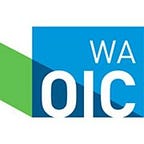Myths and facts: What does your homeowners policy cover in a fire?
It’s a particularly harrowing wildfire season, and if your home is in danger you’re probably keeping an ear open for any helpful information.
And when it comes to a complicated topic — like insurance — you’re likely to hear a lot of half-baked theories and rumors about what’s covered and what’s not.
Your best resource, of course, is your insurance agent or broker. You can also visit our website for insurance information, rules and tips in Washington state.
Here’s a few myths about homeowners’ insurance:
MYTH: Your home’s market value determines your payout.
Some homeowners may assume that the claim payout from their insurance policy will be based on their home’s market value. In reality, however, homeowners’ insurance typically considers the cost to rebuild or repair your home. That might be different from its market value, which includes the price of your land and depends on the real estate market.
Myth: Insurance will pay for code upgrades.
Your home may need to meet new, updated building codes if it’s being rebuilt after a fire. Some policies might not automatically cover the costs to comply with these codes; some may have limitations in coverage.
A standard homeowners insurance policy may only pay to restore your home to its original state. However, building code upgrade coverage (also known as “ordinance or law coverage”) is an endorsement that will pay for the additional costs associated with building your home in compliance with any codes or ordinances that didn’t exist when your home was originally built.
Myth: Additional living expense (ALE) coverage pays for all food and expenses while your home is unlivable after a fire.
ALE coverage pays for the “additional” cost associated with your home being unlivable during repairs. For example, if your normal food costs were $150 a week, and you spent $170 the week after the fire, your ALE coverage would pay the $20 increase for that week.
Myth: Since the Governor declared a state of emergency, the deductible will be waived for my fire loss claim.
A “state of emergency” declaration from a governor allows the state to allocate additional resources towards addressing emergency situations. It does not impact your insurance coverage, and there is almost no scenario in which your insurance company will waive the deductible on a fire loss claim.
Some of your deductible may eventually be recovered in subrogation — when an insurance company seeks reimbursement from the at-fault party or their insurer — but a state of emergency declaration will not impact this.
Want to get to the bottom of a different insurance myth? You can contact our office (via phone, email or online chat) with any questions or problems.
